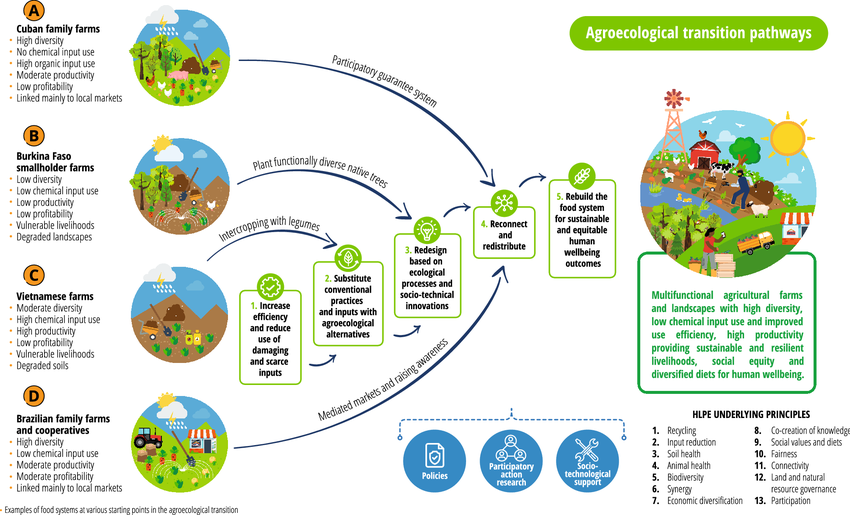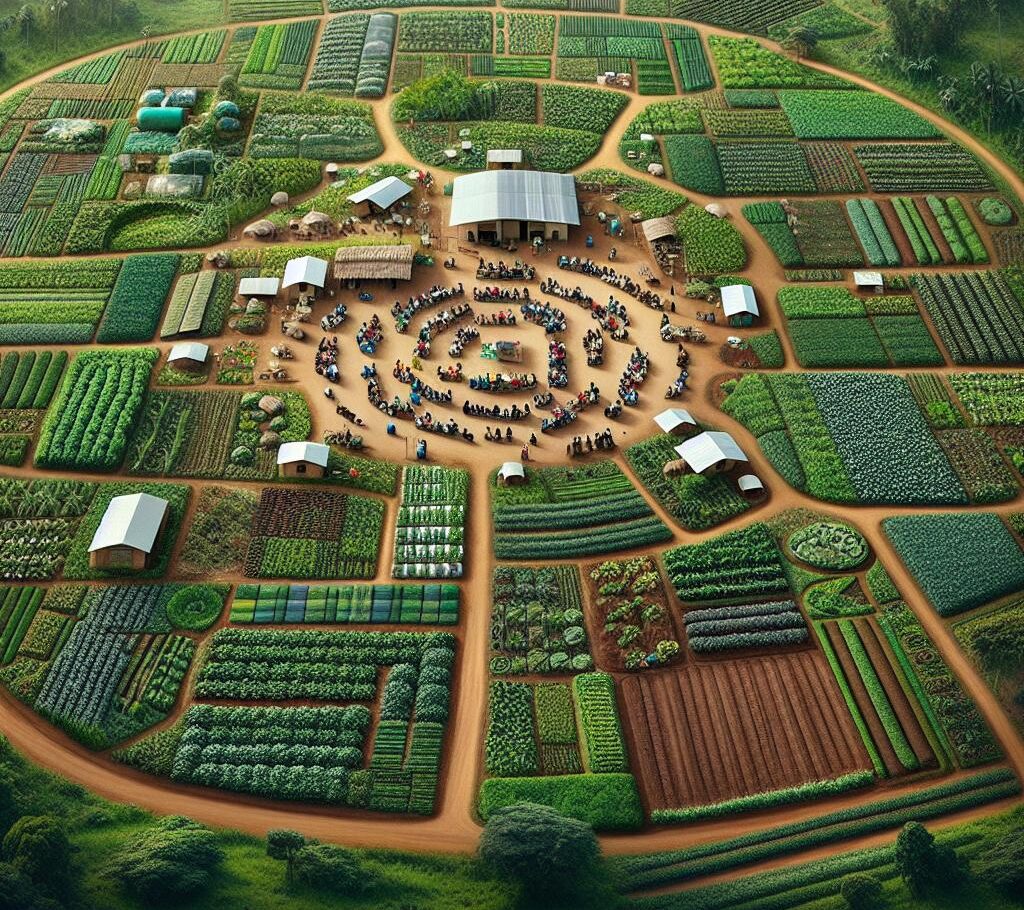In recent years, there has been a growing movement to rethink African agriculture through sustainable and agroecological approaches, especially amid reductions in traditional foreign aid from major donors such as the United States. This shift aims to foster resilient, locally financed food systems that align with natural ecosystems, promote biodiversity, and reduce reliance on imports and foreign exchange, thereby enhancing intra-African trade and food sovereignty.
Agroecology: A Holistic and Sustainable Farming Approach
Agroecology integrates ecological principles with agricultural practices to optimize interactions among plants, animals, humans, and the environment. Unlike conventional farming that often depends heavily on synthetic inputs and monocultures, agroecology encourages biodiversity, soil health, and the use of indigenous crops and local seed banks. This approach views farms as dynamic ecosystems and promotes working with nature rather than against it.
The benefits of agroecology extend beyond environmental sustainability. It enhances the resilience of rural communities by improving their capacity to adapt to climate change, pests, and diseases. Agroecologically grown crops tend to be hardier and more nutritious due to healthier soils and organic farming methods, thus boosting both yields and nutritional quality. This focus on nutrition over mere calorie output marks a significant departure from traditional agricultural development goals.
Reducing Dependency on Foreign Aid and Imports
The backdrop to this shift includes significant cuts in foreign aid, particularly from the US, which has historically been a major supporter of African agricultural development. For instance, in Senegal, proposed US budget cuts of over 50% in agricultural assistance threaten food security for millions and risk destabilizing peacebuilding efforts in regions like Casamance. Such reductions highlight the vulnerability of African food systems overly dependent on external funding and imported staples.

Agroecology offers a pathway to reduce this dependency by promoting local seed banks, indigenous crop varieties, and farming practices that are adapted to local ecological conditions. This not only strengthens food sovereignty but also stimulates local economies by encouraging the consumption and trade of locally produced foods. By building resilient food systems grounded in local resources and knowledge, African countries can better withstand external shocks such as fluctuating global commodity prices and climate variability.
Enhancing Intra-African Trade and Economic Resilience
Sustainable agroecological food systems can also catalyze intra-African trade by diversifying production and creating new market opportunities. Diversification of crops and farming methods increases the variety of products available for local and regional markets, reducing reliance on a narrow range of imported foods. This diversification supports economic resilience by providing farmers with multiple income streams and reducing vulnerability to market fluctuations.
Moreover, agroecology’s emphasis on local seed banks and indigenous crops helps preserve biodiversity, which is crucial for long-term agricultural productivity and environmental health. Seed banking initiatives across Africa are gaining traction as a means to protect genetic diversity and empower communities to control their food resources, further supporting food sovereignty and sustainable development.
Conclusion
The transition toward sustainable and agroecological food systems in Africa represents a transformative opportunity to build resilient, nutritious, and locally controlled food systems. By reducing dependency on foreign aid and imports, promoting biodiversity and indigenous crops, and fostering intra-African trade, agroecology aligns agricultural development with ecological sustainability and social equity. This approach not only addresses immediate food security challenges but also lays the foundation for long-term environmental health and economic resilience across the continent

